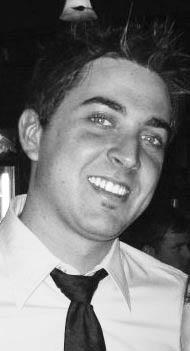Cody Blanchard has taken part in Relay for Life, a volunteer-driven fundraising event hosted by the American Cancer Society, since his sophomore year of high school. Today, six years later, the event takes on an entirely different meaning to him. This year, Blanchard is a cancer survivor.
“I have testicular cancer,” the marketing senior from Pierre Part said firmly, his shaved head and bare scalp uncovered by what had once been his brown locks. “It’s just a speed bump. I’m not embarrassed by it at all.”
In high school, Blanchard worked as a co-team captain for Relay for Life with one of his best friends. His team, along with many others, worked together to raise money for cancer research and patients.
When he came to Nicholls, Blanchard got involved in the event through his fraternity, Sigma Alpha Epsilon, hosting annual chili cook-offs and selling refreshments. And although he took an active part in raising money again this year, hosting the Fourth Annual SAE Chili Bowl this past weekend, Blanchard said this year’s Relay for Life “hit home.”
“I never thought in my wildest dreams that I would be one of the people standing up there with the survivors,” he said.
Blanchard’s battle with cancer began just three months ago when he began having pains walking from one place to another. Testicular cancer patients like Blanchard often experience enlarged testicles and abdominal pain.
Blanchard went to various doctors before finding out he had a tumor. After having surgery, the doctor told Blanchard his tumor was cancerous.
“There’s different types of tumors,” Blanchard said. “The tumor I had was called Embryonal Carcinoma, a little more aggressive type.”
Embryonal Carcinoma is a rare type of tumor that occurs, purely, only in 3 to 4 percent of testicular cancer cases, according to the American Cancer Society Web site. Because of the type of cancer, Blanchard went straight to Houston, and later to Baton Rouge, for treatment.
If untreated, testicular cancer spreads from the testes to the lymph nodes, then to the lungs and eventually to the brain. Blanchard’s cancer remains at a stage two, meaning it has only spread to the lymph nodes.
“My left lymph nodes were swollen, and I have one spot on my lungs, but the doctor isn’t sure whether the spot is scar tissue or cancer,” Blanchard said. “I have a CAT scan scheduled this week, which will tell me more.”
Before the 1980s, testicular cancer had no cure, Blanchard said. Today, depending on the stage at which the cancer is found, patients can undergo various types of treatment, including surgery, radiation therapy and chemotherapy. If found early and treated properly, patients see a 95 percent cure rate.
Blanchard began receiving a type of chemotherapy called Bleomycin, Etoposide and Cisplatin, or BEC, in February. Each round of therapy lasts 21 days. He spends the first five days of each cycle in the hospital, and then receives mini-treatments once a week for two weeks. Having had two rounds already, Blanchard’s final round of therapy will begin Saturday.
“There should be no complications after this,” Blanchard said. “I learned there’s a difference between remission and cure. After this, I should be cured of cancer, which means I won’t have it. I will just have to do maintenance CAT scans to make sure nothing comes back.”
But chemotherapy doesn’t come without its downfalls. Blanchard said the treatment has made him physically exhausted.
“I’m learning to, when I have good days, do what I can on those days, and when I’m not having good days, to just rest. It’s just learning to rest,” Blanchard said. “You also learn lemon heads and peppermints help with nausea.”
And like many forms of chemotherapy, Blanchard’s treatment has caused him to lose his hair. Instead of waiting for it to fall out, Blanchard shaved his head to the scalp.
“I’d put my hand in my hair and pull, and it would all come out,” Blanchard said. “So I went and had it shaved very short. And when I went to the hospital, my mom brought the clippers and shaved it some more.”
Despite his condition, Blanchard continues with his schoolwork, attending class when he can and working toward graduation, slated for May.
“My professors have worked with me really well,” he said. “I’ve had some extended deadlines because of treatment.”
Blanchard’s family and friends have also been a “strong support system,” he said.
“Just the support from everyone, from the Facebook messages to the text messages, from people at school, from my fraternity, from Student Publications. It helps a lot.”
After his final round of chemotherapy, Blanchard said his hair will grow back in two or three months, and he will be able to live a normal life, cancer-free. He hopes to work for a marketing firm in New Orleans after graduation and eventually have a family.
“I can still have kids,” he said. “I’ve heard of so many guys in their 30s, 40s and 50s who have this, and they have families.”
Relay for Life of Lafourche Parish will take place April 9 from 6 p.m. to 6 a.m. at Nicholls. So far, 62 teams are involved and more than $9,000 has been raised.








